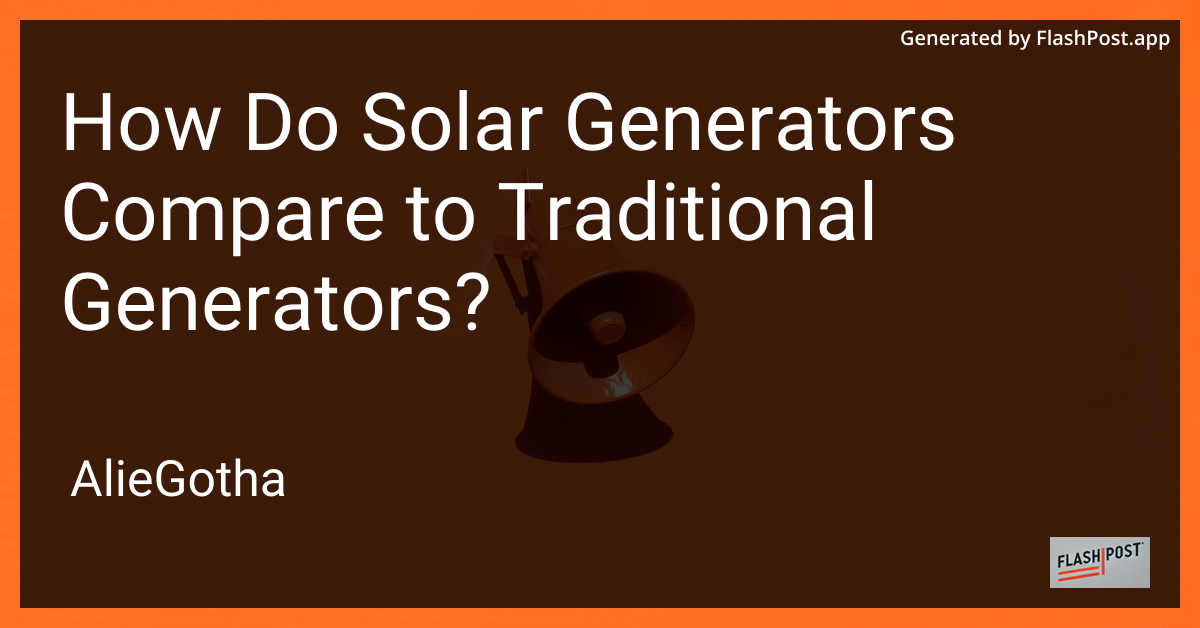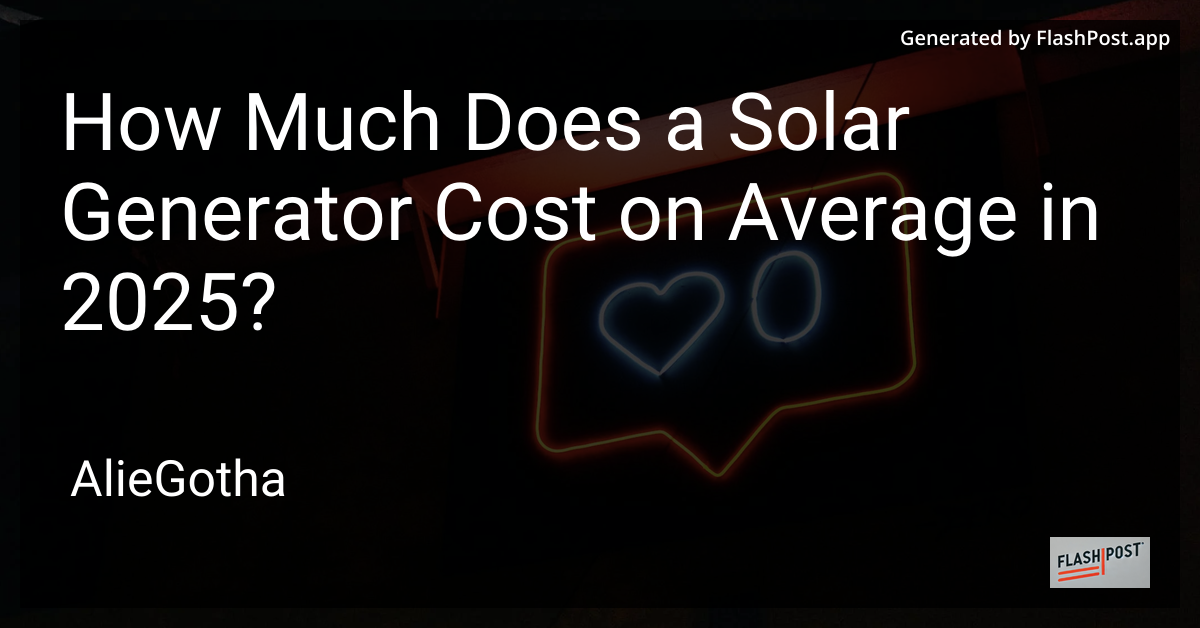

How Do Solar Generators Compare to Traditional Generators?
As more homeowners and businesses seek sustainable and efficient energy solutions, the debate between solar generators and traditional generators has gained prominence. Both types have their merits, but understanding their differences can help you make an informed decision based on your specific needs. This article compares solar generators with traditional ones, highlighting key factors such as environmental impact, cost, maintenance, and efficiency.
Environmental Impact
One of the most significant differences between solar and traditional generators lies in their environmental impact. Solar generators rely on clean, renewable energy from the sun, which means they produce zero emissions during operation. This makes them an eco-friendly choice that contributes to reducing your carbon footprint.
In contrast, traditional generators often rely on fossil fuels like gasoline or diesel, which release harmful emissions into the atmosphere. If minimizing environmental harm is a priority for you, solar generators are a clear winner.
Cost Analysis
Initial costs for solar generators can be higher due to the expense of solar panels and storage batteries. However, they benefit from low operational costs since sunlight is free and abundant. Over time, these savings in fuel expenses can offset the initial investment. To better understand the cost implications, you can explore home solar panel requirements to optimize your setup.
On the other hand, traditional generators are typically less expensive upfront but involve ongoing costs for fuel and more frequent maintenance. Fuel prices can be unpredictable, which might lead to fluctuating operational expenses over time.
Maintenance Needs
Solar generators require minimal maintenance, primarily concerned with keeping the solar panels clean and ensuring connections are secure. The lack of moving parts translates to fewer chances of mechanical failures, making them a reliable energy source with little upkeep.
Traditional generators, conversely, have engines that require regular oil changes, spark plug replacements, and other general maintenance tasks. This can result in higher long-term maintenance costs and time investment.
Efficiency and Reliability
In terms of efficiency, solar generators perform best in sunny weather conditions. However, advances in battery storage technology allow for energy collection during sunny periods and usage during cloudy days or nighttime. Solar generators also operate silently, providing a peaceful power solution.
Traditional generators, while reliable, can be less efficient due to energy losses in heat and noise production. They provide constant power, regardless of weather, making them a dependable choice during extended cloudy periods.
Conclusion
When deciding between solar and traditional generators, consider what’s most important to you: environmental impact, long-term costs, maintenance, or reliability. Each option offers unique advantages, and your choice will depend on your energy needs and circumstances. Be sure to explore related resources such as the best solar flashlight for other solar-based solutions or check out solar-powered bird baths to integrate solar energy into various aspects of your lifestyle.
By prioritizing sustainability and efficiency, solar generators present a compelling choice for powering the future in a cleaner, greener way.
